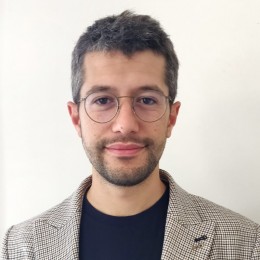
I obtained my first M.Sc. in Medicinal Chemistry at the University of Padua, Italy (2019), and a second M.Sc. in Research in Behavior and Cognition at the University of Barcelona, Spain (2022).
For my first Master’s thesis I was embedded in the Genetics and Cognition lab, Department of Neuroscience and Brain Technology, at the Italian Institute of Technology (Genoa, Italy) under the supervision of Dr Francesco Papaleo. Here, I developed my thesis project investigating the role of the endocannabinoid system (ECS) in mice social cognitive (dis-)functions. To address my questions, I tested mice in different (social) behavioral paradigms following different ECS manipulations, including chronic and acute pharmacological treatments of Cannabinoid receptors (CBr) agonists and the genetic silencing of the astrocytic CB1r in the medial prefrontal cortex.
I then decided to extend my qualifications to human research in cognitive neuroscience. After working nearly two years as a pharmacist during the Covid pandemic (Treviso, Italy), I took my second M.Sc. at the University of Barcelona. Here, I developed my thesis within the Cognition and Brain Plasticity Unit led by Dr Antoni Rodriguez-Fornells, at the Bellvitge Biomedical Research Institute (Barcelona, Spain). My project aimed at behaviorally investigate, in a controlled environment, the role of curiosity and music-related reward sensitivity on decision-utility in a musical context and on episodic memory performance.
I joined the Brainlab by late 2022 as a prospective PhD student to be started in September 2023. I am currently working in the lab as a research technician in the cerebellum and audio-motor interaction research line, supervised by Dr Jordi Costa-Faidella. My interests focus on the neurobiological underpinnings of sensory-motor integrations within the auditory modality. Particularly, in the development of my PhD thesis I will attempt to shed light on the role of the cerebellum in the perception and production of fine-tuned pitches, through specific behavioral testings and state-of-the-art electrophysiological recordings.

